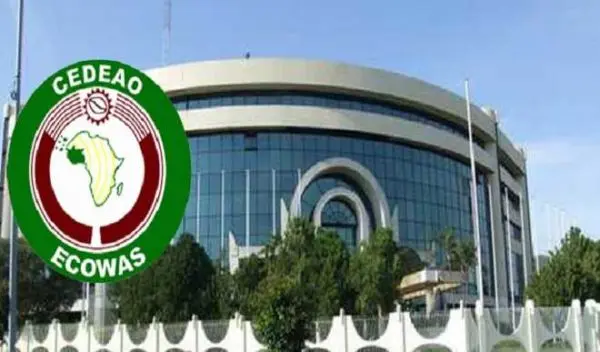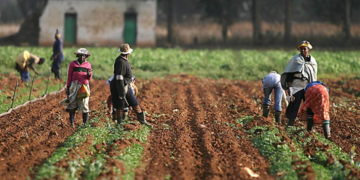The Economic Community of West African States (ECOWAS), the bloc founded to promote cooperation and economic integration in West Africa has reported a 10 per cent drop in trade volumes within the region.
Lawmakers in the regional parliament representing over 400 million people blamed the lack of a single currency among ECOWAS member countries and efficient payment systems as the main drivers for the overt trade deficits.
Speaker of the ECOWAS parliament, Dr Sidie Mohamed Tunis, stated this at the first 2023 parliamentary seminar on Sequencing ECOWAS Monetary Cooperation Towards Single Currency, with the theme: “ECOWAS Common Currency and the Inter Bank Payment System as Promoters of Regional Trade,” holding in Bissau, Guinea Bissau.
He said, “Having identified these challenges, and to increase the volume of trade in the region, the ECOWAS Authority of Heads of State and Government decided to accelerate the process of creating a single currency, through the adoption of the convergence pact and a new roadmap for the launch of the single currency by 2027. It is gratifying to state that this decision by the Heads of State, has led to significant progress in recent years.
“As a consequent thereof, the ECOWAS Parliament, through this parliamentary seminar, saw it befitting for members to be informed on these policies and programmes of the Community, namely the state of progress of the single currency programme, as well as the project for the development of the inter-bank payment system.”
“The Parliament also wishes to contribute fully to the process of creating the single currency, by ensuring effective monitoring of the Community bodies and institutions in charge of this programme and by promoting the support of the populations of which we are, in essence, the closest representatives.
“This parliamentary seminar should, therefore, enlighten us on the conditions for strengthening convergence and macroeconomic stability in the region.
“It would also provide greater insight into the coordination of economic policies and the development of a payments system for the Member States to facilitate their economic integration. Furthermore, this seminar would address all the other challenges we are determined to meet, to achieve the single currency by 2027, as announced.
This would provide members with the opportunity to debate the new roadmap submitted by the ECOWAS Commission to the Authority of Heads of State and Government and, at the same time, make proposals and recommendations guaranteeing the start of the monetary union in 2027.
“We intend to take advantage of the expertise of Resource Persons from the ECOWAS Commission, the West African Monetary Agency (WAMA) and the West African Monetary Institution (WAMI), as well as other experts from the region who have worked painstakingly to produce high-quality reports and studies on the single currency process.
“I would like to take this opportunity to thank the ECOWAS Commission for the remarkable work it has done so far. Specifically, I wish to commend the President of the ECOWAS Commission and his Commissioners, as well as other Heads of Institutions and Agencies of the Community, for their dedication and selflessness in the implementation of the monetary cooperation programme.
“It is important to bear in mind that achieving a common currency would, no doubt, be a major milestone in the West African cooperation and integration programme. We have a duty to make that happen.
“Let me state that the advent of a single currency gives us the opportunity to build a strong economy that can compete with other emerging economies in the world. It is, therefore, our duty to seize this historic opportunity. I wish us a very good seminar, hoping that whatever output we achieve here in the next three days, would go a long way in benefitting the people of the region,” he said.
In his keynote address, the President of the Republic of Guinea Bissau, Umaro Sissoco Embalo, expressed personal support for actualising the adoption of the Single Currency within the ECOWAS region.
He said, “We are creating a new economy which is also financial and commercial within ECOWAS. The money system that we want to establish will encourage or stimulate our development and maintain the friendship, solidarity and cooperation among our countries and populations.
He added that this process should be conducted very conclusively because of the various challenges ahead. “This is the reason to introduce the common currency. It will require the involvement of the political class and all those interested parties as well as creating a foundation of strong political and economic integration,” he said.
We’ve got the edge. Get real-time reports, breaking scoops, and exclusive angles delivered straight to your phone. Don’t settle for stale news. Join LEADERSHIP NEWS on WhatsApp for 24/7 updates →
Join Our WhatsApp Channel










